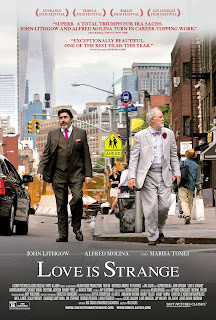With over 100 years worth of films to choose from, and many of these now available at the click of a button, it can be extremely difficult to narrow your choices down to pick a film to watch. Although cinema has been around for over four times longer than my life on this earth, I have spent what some may consider an unhealthy amount of these years delving into the history of films to discover some of the best hidden gems out there.
Country - Poland
Year - 1965
Runtime - 185
minutes
Extravagant and intricate storytelling awaits anyone who delves into Wojciech Has' decadent three-hour opus The Saragossa Manuscript. Has plunges us through surreal, macabre and sensual tales where we meet a vast array of fascinating characters such as bandits, cabalists, sultans and temptresses; many of whom are gifted in the art of recounting enchanting anecdotes. This enthralling fantasy features multiple subplots that are intertwined with a startling dexterity as each narrator encounters other characters who are fond of regaling all and sundry with their exploits, thus opening up a Russian doll like experience as we delve deeper into the unknown until the storylines begin to loop back upon one another.
A rousing rendition of Ode to Joy greets us as the atmospheric opening credits part to leave us with a view of Spanish soldiers embroiled in a battle on the outskirts of a town in ruins. One of these soldiers flees to the safety of a nearby house and chances upon an enticing manuscript that distracts his attention from the carnage outside. He is joined by an enemy soldier who is likewise hypnotised by its striking illustrations and their differences are cast aside when the second soldier begins to read aloud a story contained within that happens to be an account of his father’s life, Captain Alfonso van Worden. We are then thrust headfirst into the central storyline about Alfonso where further diversions continue to be presented in a similar manner and the narration takes us through an engaging odyssey of adventures.

Strange, ethereal noises accompany scenes in which the primary protagonist comes under affray from supernatural beings. These otherworldly tones foreshadow the mischievous nature of the spirits he encounters, as they play cruel tricks that test his integrity of character. The dreamlike visions he experiences leave us as confused as Alfonso wrestles with his blurred perception of reality, uncertain if his waking life has been distorted by powers beyond our comprehension. The spellbinding imagery of these eerie sequences evokes a similar ambience to the fantastical delights of Cocteau's classics Orphée and La Belle et la Bête; entrancing us with hypnotic visuals befitting of a dark fairy-tale.
As we enter the second half of the story, we move away from elements of fantasy and encounter rich merchants and noblemen who vie for the attention of alluring young ladies as charismatic rogues manipulate their dalliances in the pursuit of coin. The story appears to tumble further and further down into a seemingly inescapable rabbit hole, and it is bewildering but exciting to imagine how the film's loose ends will all come full circle. Repeat viewings are recommended as some characters have story arcs that begin before they are even introduced as they make brief, subtle appearances in the segments that precede their own. This doesn't hinder the enjoyment of the picture on first viewing but instead enriches the experience for those who are willing to explore the intricate labyrinth of subplots that leads us to consider the intelligent design of this philosophical puzzle.
The vast scale of this undertaking is awe-inspiring with labyrinthine levels of detail, the likes of which you may have seen in ambitious works such as the Wachowski's epic science fiction film, Cloud Atlas, or in the surreal philosophical leanings of Chilean film-maker Raoul Ruiz's mystical oeuvre. As is the case with the aforementioned works, The Saragossa Manuscript is a thought-provoking film that demands your full attention but the treasure chest of delights that are unearthed along the journey are more than worth your unwavering gaze.
In less capable hands this storytelling technique could easily leave us disoriented and confused but Has conjures up such evocative imagery and brilliantly realised characterisations and this enable the separate strands to remain distinctive and easily identifiable. One of his characters even exclaims that the key to great storytelling is in the art of suspense, and this notion is used throughout as Has often leaves us hanging in anticipation when traversing between narrators. Playful self-referential shenanigans such as this off-hand remark imbue Has' film with a wit that complements the surreal humour and shows daring as his wild ideas bring flavour to the film in an innovative and enthralling manner.

Wojiech Has adapted the source material for The Saragossa Manuscript to the big screen with a real flair for theatrics and showmanship that utilises the tremendous talents of the actors who bring his version of the story to life with great aplomb. There are not many filmmakers who could conjure up such an accessible and satisfying head trip from a lengthy 18th Century novella and this is perhaps the reason why The Saragossa Manuscript remains a cult oddity without comparison. Anyone who is open to the surreal tendencies of Film Directors such as Jodorowsky or Buñuel will find themselves at home in Has' enticing oeuvre of films, with The Saragossa Manuscript standing out as the culmination of a lifetime devoted to the cinematic art of storytelling.
If you take the time to watch The Saragossa Manuscript then it would be awesome if you could also take the time to let me know what you thought of it, either by commenting below or tweeting me @filmbantha. Thanks, and enjoy!









































